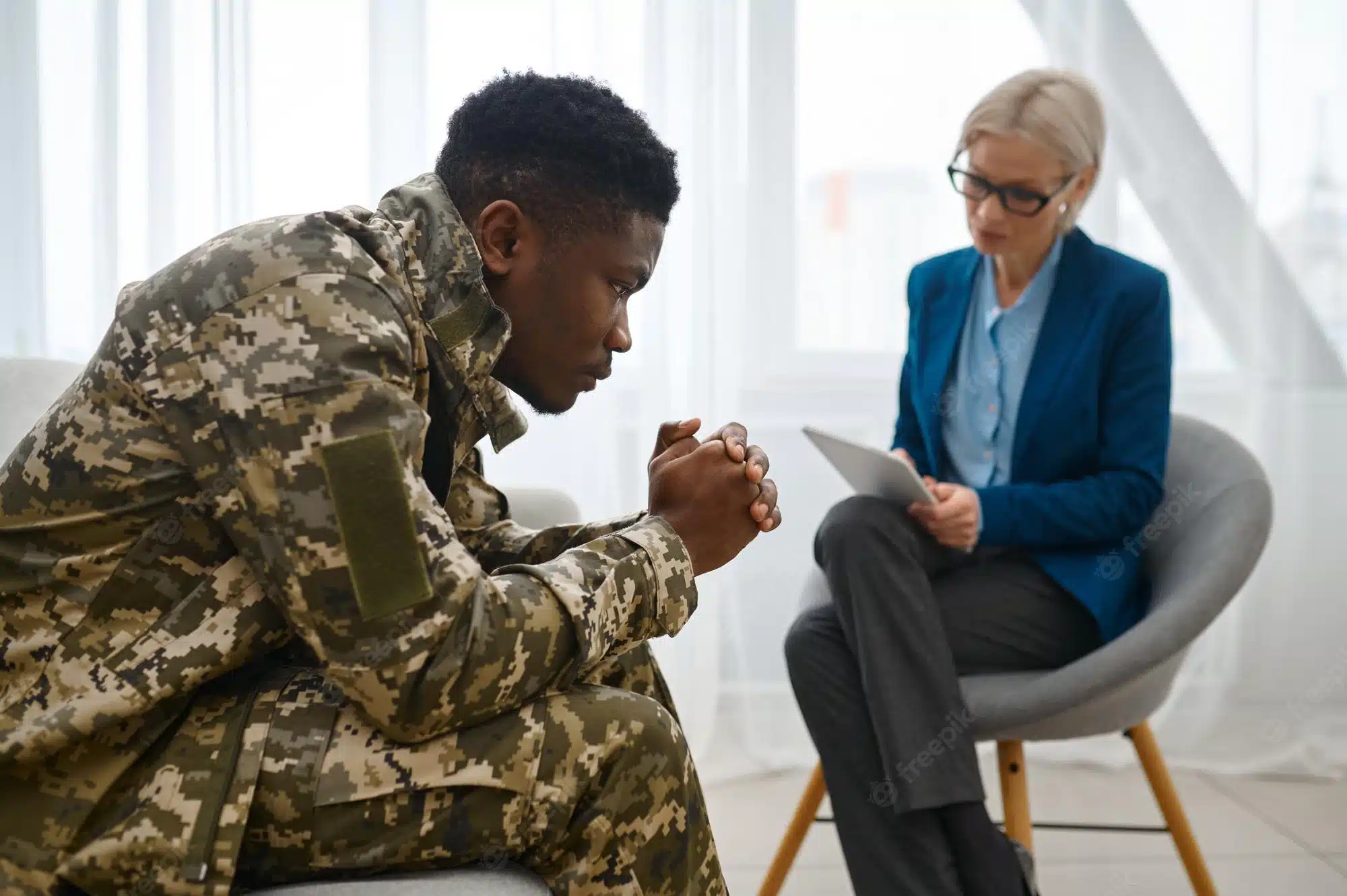
Some veterans come back from war or serve active duty in hostile territory, and they’re more or less okay. They may sometimes remember things they saw or heard, but they don’t bother them much.
Others see horrific things in active war zones, though. They might struggle when they return home.
Rejoining society following military service can challenge even the strongest and toughest individuals. If you’re not feeling quite right after you come home, you may see a therapist or a medical doctor.
They may say that you have PTSD. If they do, you should learn about this diagnosis. Then, you can start figuring out how you can get past it.
What is PTSD?
Let’s say you’re living in Florida after serving in the military. You like walking on the beach and watching the sunset. You frequently think about what happened during your deployment, though. You may wake up from nightmares, sweating and shaking.
Florida accident victims can seek economic damages, and that’s usually a fairly straightforward process. What about someone in your situation, though? Seeing a medical doctor or a therapist will likely help you out in this instance.
If the doctor or therapist says you have PTSD, that means you’ve gone through something traumatic, and it has impacted you in a serious or lasting way. You might receive a PTSD diagnosis following military service, but you can also get one after a bad car accident.
You might develop PTSD after surviving a violent crime. If someone robbed you or you survived a sexual assault, that may qualify. You might develop it after a natural disaster, like an earthquake or a typhoon.

How Can You Tell?
We mentioned nightmares. Those sometimes indicate you have developed PTSD. You might also shake in situations that trigger your anxious feelings. Maybe you don’t like crowds anymore. If you’re among many people, you may feel some might have hostile intentions.
Paranoia sometimes accompanies PTSD. You may also have trouble sleeping. You may feel irritable. You may sleep too much, or perhaps you’ll feel intensely antisocial. Your family may say you seem distant or otherwise changed.
Individuals with a PTSD diagnosis sometimes say they feel detached. They sometimes say they feel like entirely different people. What they saw has changed or even warped them.
What Can You Do After This Diagnosis?
If you get a PTSD diagnosis, you should first see a mental health professional. A therapist has the tools you need that should help you. Try seeing someone who has worked with individuals with PTSD before.
You can tell them what’s troubling you. Sometimes, it helps when you say out loud what’s in your head. If you can give it a voice and not let it fester inside you, that’s one way you can heal.
If you don’t feel like you can tell your family certain things, you can tell the therapist instead. They should understand, but even if they don’t, they can at least listen.
Many former soldiers with PTSD feel that no one listens when they talk or their own family does not see them. That’s very troubling, and discussing your feelings, thoughts, and fears can help the healing process.
The therapist might suggest writing exercises you can do. They might have you meditate to work through your raw emotions. They may also feel medication can help them.
Some medications work well with individuals who have received a PTSD diagnosis. Antianxiety medications can help even you out if you feel high stress or anxiety levels. Maybe if you give them a chance, you will gradually feel better.

You Can Bring Your Family into Your Therapy Sessions
If you have some family members who you love and who love you as well, maybe you don’t feel you can discuss your problems. You think they won’t understand, or they won’t acknowledge you.
Eventually, after spending time with a therapist, they may suggest you bring in your family members too. They can start attending your sessions. There, you can mention what’s troubling you. You can have a safe space where you can express your deepest fears and discuss your trauma.
They might not fully understand, but if you can mention what’s troubling you, they should know what you’re experiencing. You should mention only what you feel you can. You may hold some things back, and that’s fine. You can have the therapist there as an intermediary.

You Might Recover in Time
Many individuals who receive a PTSD diagnosis get better eventually. They may never forget what they saw, heard, or experienced in the military, but they can learn some coping mechanisms. They can often get good jobs and start careers. That can help distract them even as they make money.
Eventually, you might feel like you’ve gotten past the worst parts. You may have fewer nightmares, and you can walk among people without fear, stress, or anxiety. You can also tell your loved ones when you’re feeling detached or lonely.

You Can Start a New Life
PTSD seldom goes away entirely. Like what you saw, heard, and experience, it forms your core being. That does not mean that it owns you, though. You can work through it if you train and learn techniques that put it in its proper place in your psyche.
Millions have PTSD, but many times, they can reclaim their lives. If you don’t get help, this condition might consume you. That’s when you get into dangerous territory. Some soldiers or former soldiers take their own lives if they feel they can’t seek help or they’re not getting it.
That’s never the answer, and you can often find someone who will listen if you just reach out. PTSD isn’t a death sentence, and the medical community understands it better now. Therapists can diagnose it more easily, and they can use new techniques that effectively combat it.
Remember that if you get this diagnosis. It can change your life, but it certainly doesn’t control you.
ATTENTION READERS
We See The World From All Sides and Want YOU To Be Fully InformedIn fact, intentional disinformation is a disgraceful scourge in media today. So to assuage any possible errant incorrect information posted herein, we strongly encourage you to seek corroboration from other non-VT sources before forming an educated opinion.
About VT - Policies & Disclosures - Comment Policy



